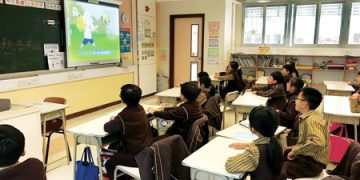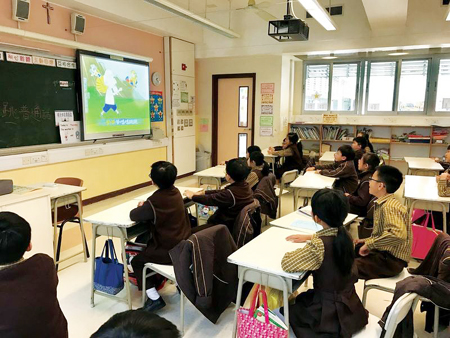For half a year, 10-year-old Kee Sum-yuet and her 8-year-old twin brothers have been going to a Mandarin tutorial session every Saturday afternoon in the Mongkok area of the Hong Kong Special Administrative Region. She has enjoyed learning the language, which has helped her make new friends, as many of her elementary school classmates are Malaysian Chinese or Singaporean Chinese who speak both Mandarin and English.
But Kee’s mother, Chan Saukum, who is a business manager, has a bigger reason for wanting her daughter and sons to learn the language.
In Chan’s opinion, Mandarin will provide her children with more communication opportunities and diverse choices, as the language is more widely used than Cantonese in various communities of the Chinese diaspora, including in Canada, Singapore, Malaysia and some European countries. Chan called it “a late decision “to arrange for her children to learn Mandarin, since many of her friends’ children began learning the language when they were 3 or 4.
More than a billion Chinese on the mainland speak the language, and an increasing number of non-Chinese are learning Mandarin, Chan noted, adding that she plans to have her children continue to learn the language for the next few years.
Local purchaser Joanne Leung, who also views learning Mandarin as a skill set booster, extended the extracurricular Mandarin tutorial for her 9-year-old son, Jarvis Wong.
She sent her son to learn the language about four years ago to prepare for the interview for elementary school admission.
After taking the weekly Mandarin class for a few months, her son passed the entrance interview. However, Leung had Wong continue the tutorials.
In Leung’s view, as China is a rising power, Mandarin is a crucial global language, and learning Mandarin will give her son more opportunities for study, work and living.
Chan Man-lung, who established Hong Kong Professional Putonghua School in Mongkok-the tutorial school attended by 10-year-old Kee-in 2018, noted the spike in the number of people in Hong Kong learning Mandarin, also known as Putonghua. “The age of people learning the language is getting younger and younger over the years,” Chan said.
Chan expects another surge in the number of Mandarin learners and Mandarin-teaching institutions after the COVID-19 pandemic, as the 25th anniversary of Hong Kong’s return to the motherland has proved that Hong Kong will have a closer connection with the mainland, and using Mandarin will be an unstoppable trend in the city. – China Daily
- Latest
- Trending





